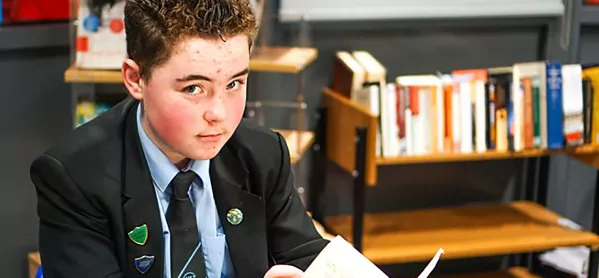Able students sometimes have trouble connecting personal effort to achievement, seeing it as something beyond their control. Much of what they do and learn can be achieved with relatively little effort.
While this may seem to be a good position to occupy, it has its drawbacks. If they succeed, it can somehow be put down to luck or some other external factor. This attitude can make students feel as if the effort is pointless. Praising of effort can help, but these children also need to understand the role personal responsibility plays in success. The straightforward reality is that the very children who need some of the greatest support because they are smart but disadvantaged are precisely the learners who are underperforming and underachieving on an industrial scale. In the second episode of Generation Gifted, we meet the three able boys.
Generation Gifted case studies
Kian is a bright mathematician, hopes to work in computing and keeps being told he has “potential”, which is causing him to feel pressure to “live up to it” both at school and at home. All he wants is someone to “please help me with that”. His dad is determined for him to get out of Hartlepool and Kian is shocked when he does well on a placement at Durham University. The weight of the expectations he feels are being imposed on him seem to have substantially damaged his confidence. His relationship with his father is highly stressful for him.
In Newcastle, Liam hopes to gain top science grades at GCSE, and become a chef, like his hero Heston Blumenthal and “apply the science to cooking”. His school want him to consider medicine and are concerned that he will end up “working in a kitchen in a Wetherspoons”. When he is finally persuaded to look at his local university’s medical courses, he is struck by the new possibilities. One of the medics there, coming from a similar background, makes the point that success is conditional. “I don’t think it’s the money, it’s the familial support.” In the meantime, Liam’s anger issues over his father’s absence threaten to derail him completely.
London-based student Jamarley is an “all rounder” with a particular passion for music, but that doesn’t stop him arriving late for catch-up sessions and pushing his music composition deadlines to the limit. During the programme, his supportive father is deported to Jamaica and is subsequently seriously hurt in a drive-by shooting, but his mother’s determination to help him to overcome adversity helps him through. He receives the headteacher’s award, but concedes that his “focus is a bit everywhere”.
Poverty and turbulence
The less acknowledged common characteristics of poverty are the greater likelihood of family and home turbulence, the smaller chance that students will make informed decisions on subject choices and the lack of cultural and social capital to support them. In addition, environmental risks such as family turmoil have a huge effect on children’s cortisol levels. Unsurprisingly, extreme stress compromises our ability to regulate thought. With the absence of buffers, these students are facing waves of emotion that will almost certainly capsize them. In his book, Helping Children Succeed: What Works and Why, author Paul Tough argues that a “crucial role that parents play early on is as external regulators of their children’s stress”. When parents behave harshly or unpredictably - especially at moments when their children are upset - the children are less likely over time to develop the ability to manage strong emotions and respond effectively to stressful situations.
What schools need to look at is how they can help their poorest students to see themselves in a very different light as learners. If all the time they believe that somehow their failures are innate and unchanging, a core set of attributes that define their very essence, they are pretty much guaranteed to give up. Such students tend to react to negative events by explaining them in terms of the three Ps: permanent, personal and pervasive. Instead, teachers need to focus on what learners believe is in their locus of control and how their self-perception can be changed, often despite the impact of their home background.
Disadvantaged students who believe that glass ceilings and injustices will hinder their achievement are not likely to work to their potential in school. They will short circuit and sabotage themselves. The picture is complex and pupils often juggle numerous identities in their everyday lives, switching from one to the other as necessity dictates. It is vital that schools recognise and acknowledge these multiple identities and break the cycle of cultural stereotyping of pupils and their communities, which can impact negatively on relationships, expectations and ultimately, attainment.
Generation Gifted was on BBC Two at 9pm on 14 and 15 February
Ian Warwick is the senior director of London Gifted and Talented
Want to keep up with the latest education news and opinion? Follow Tes on Twitter and like Tes on Facebook


